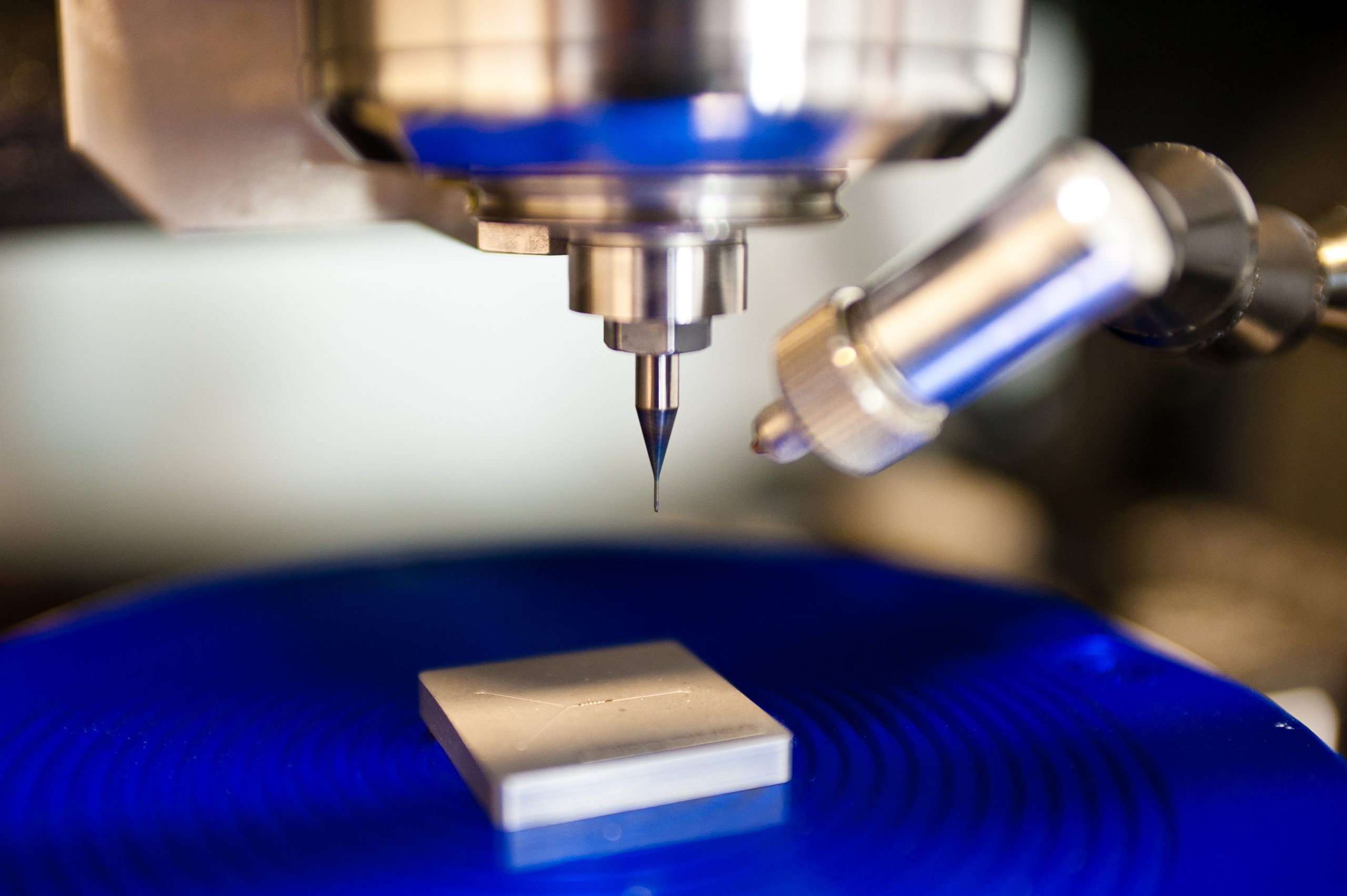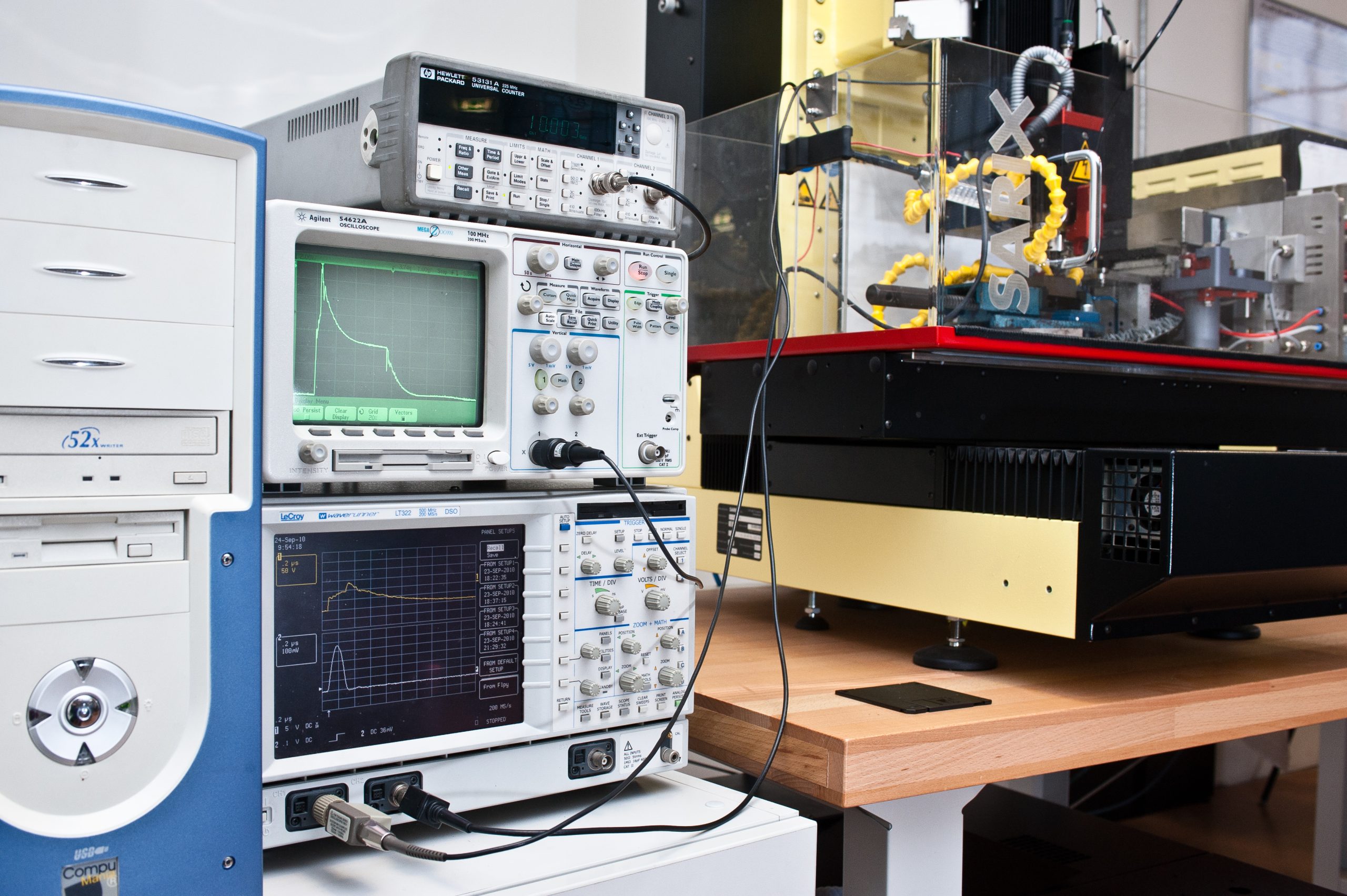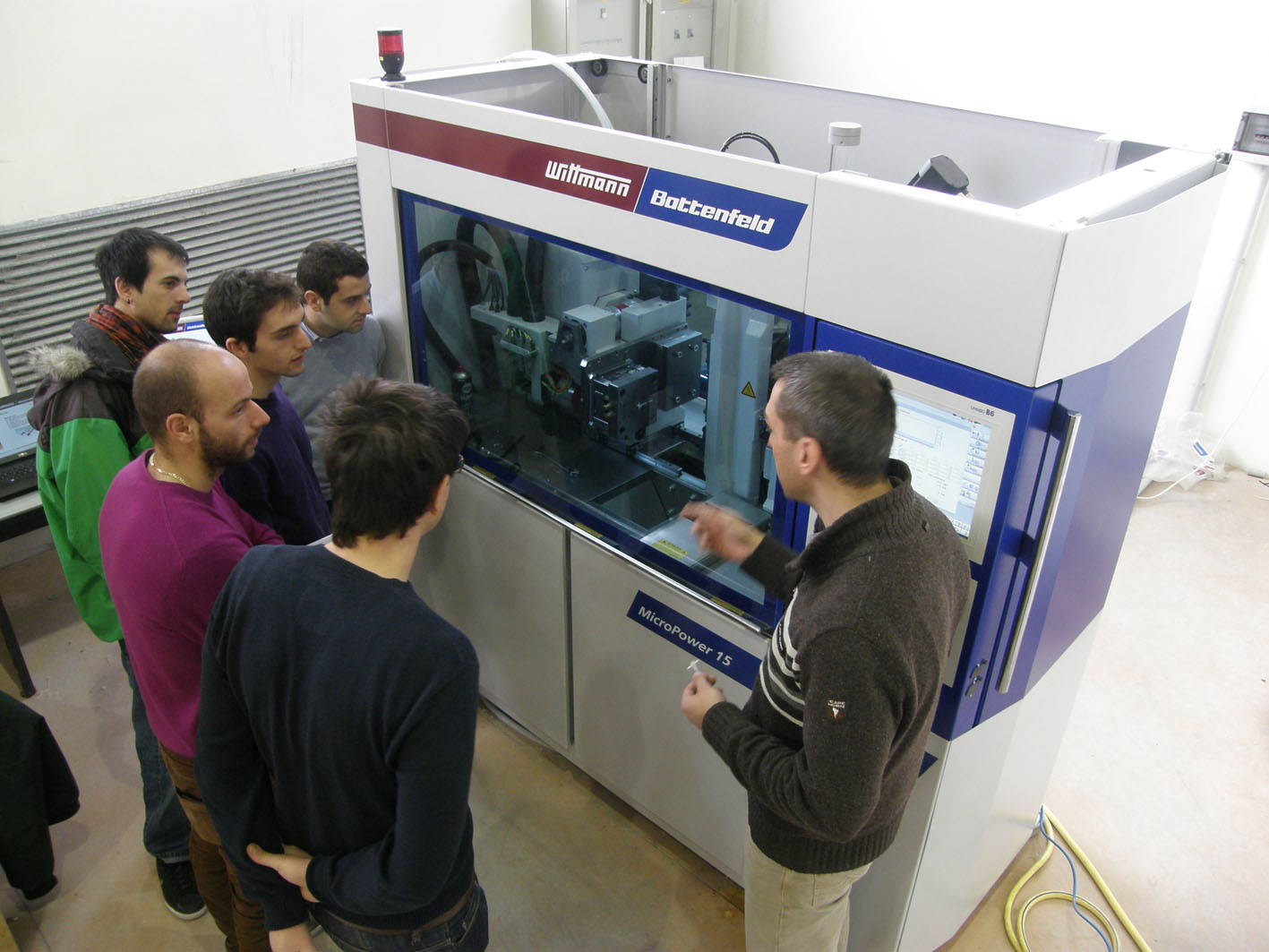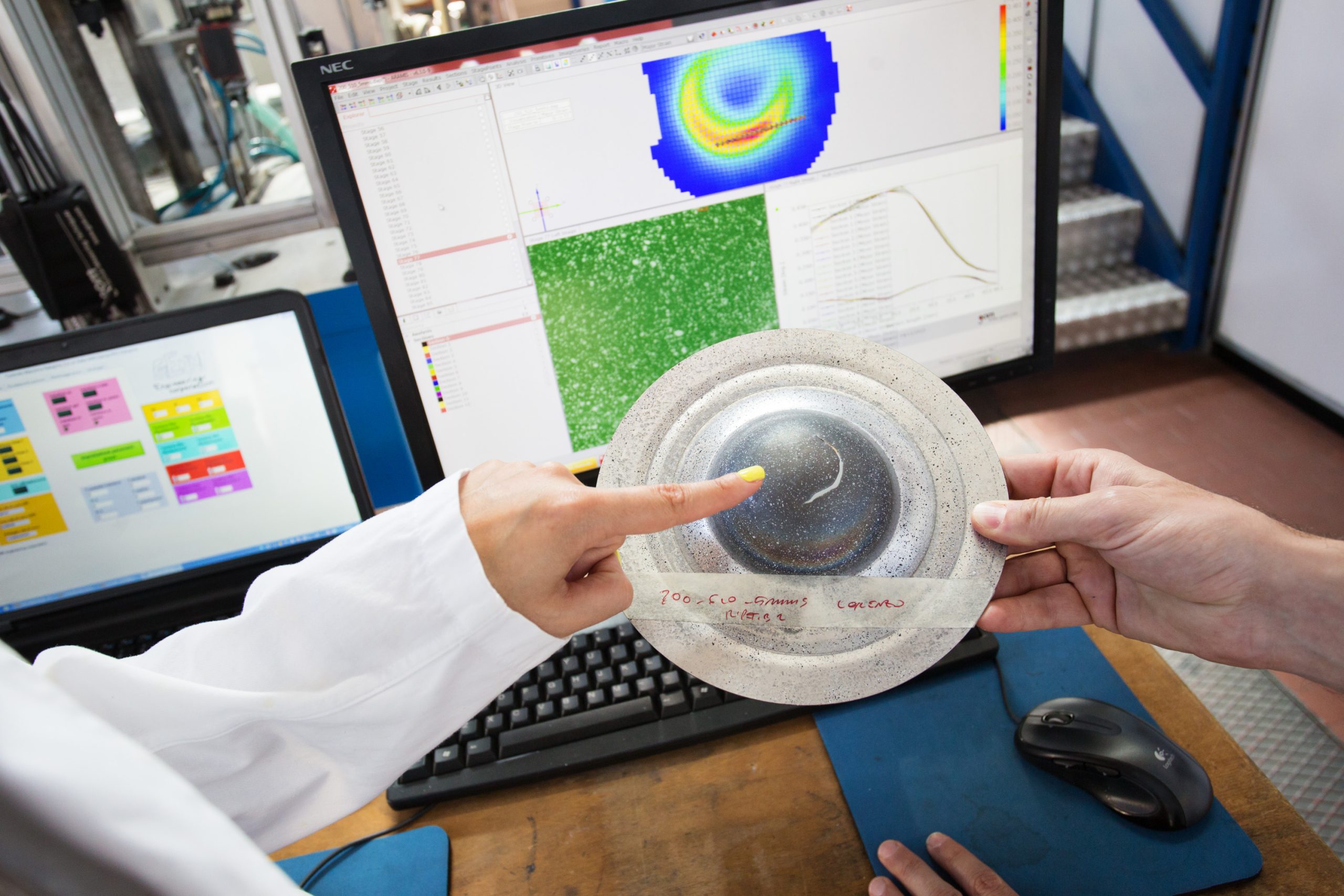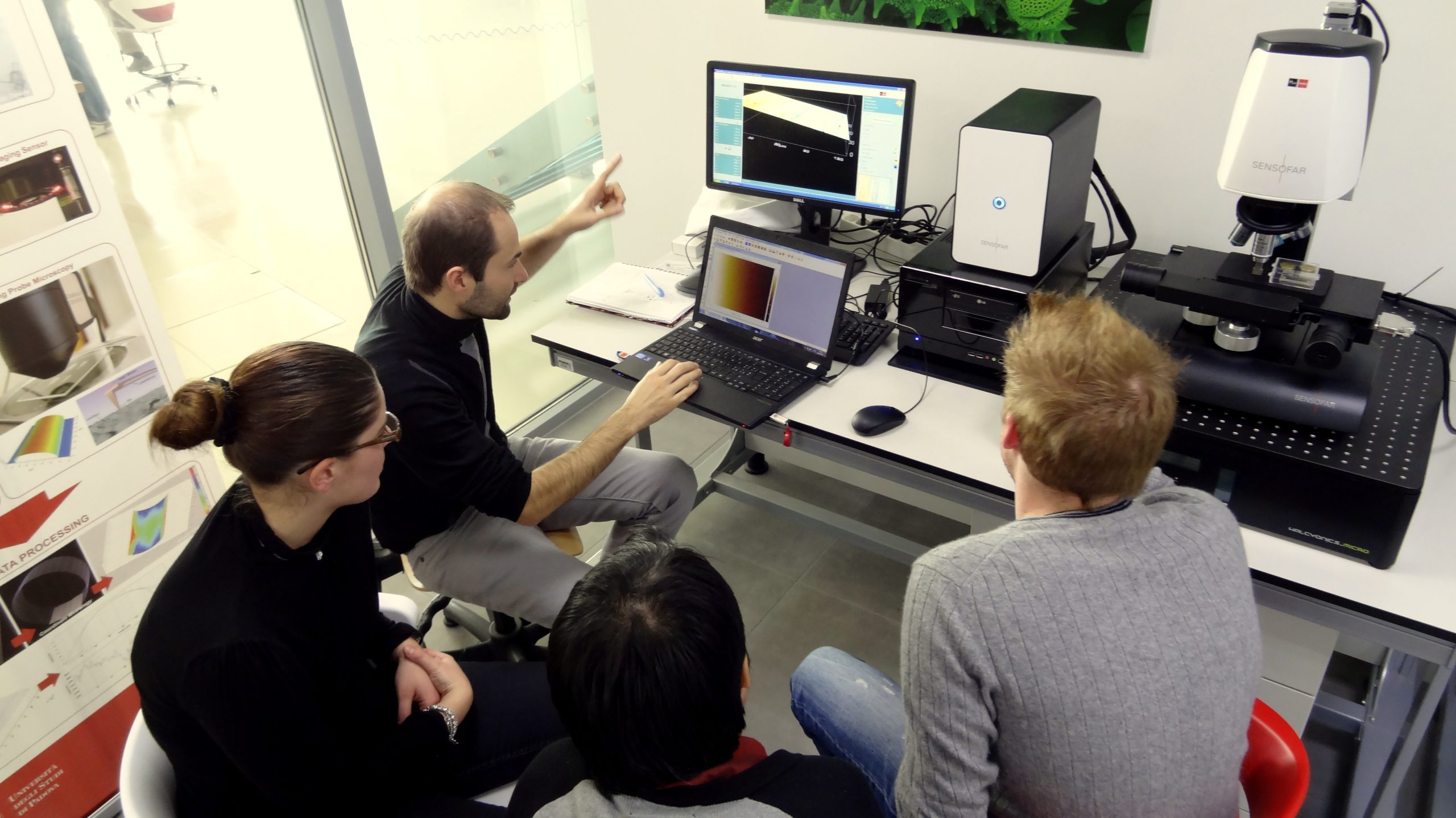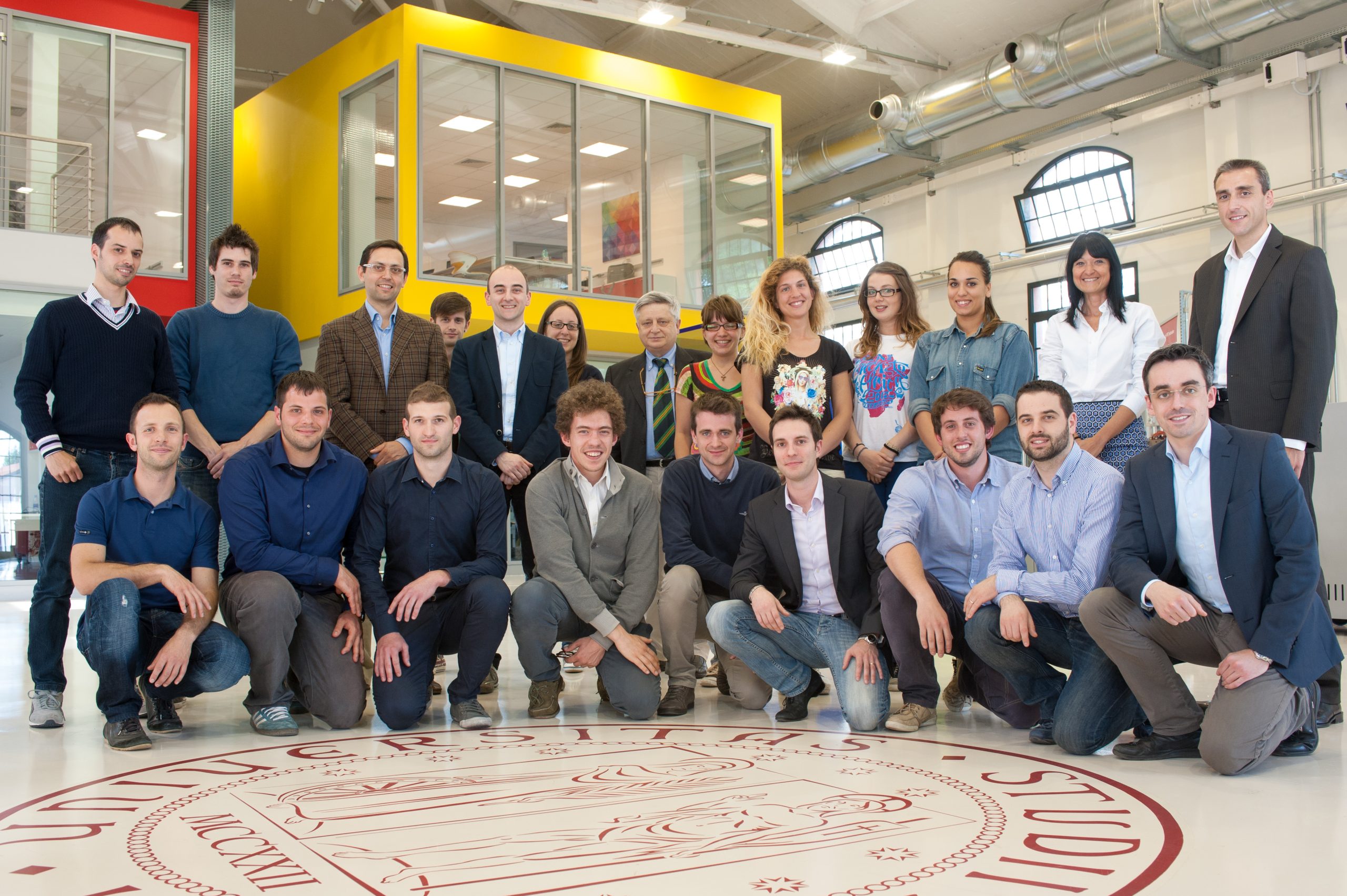Manufacturing engineering
Research Activity
The research group in Precision Manufacturing Engineering, leaded by Prof. Paolo F. Bariani, is active in research, education and contract work for industry. The researchers are six permanent staff, three post-PhD and 17 PhD students. The research activities are focused in the following areas.
Micro-Manufacture Engineering
Research activities cover both scientific and technological aspects related both to capabilities of a set of micro-manufacture and relevant key enabling technologies and to the development of innovative process chains for the manufacturing of micro and precision mechanical systems. In the above technological domains the research is carried out with complementary and synergistic competences. Main current research lines cover:
- micro-machinability of biomedical alloys produced by AM technologies;
- optimization of machining-based process chains to enhance performances and service life of biomedical components;
- fabrication of 3D micro- and nano-scaffolds;
- design and fabrication of 3D micro- and nano-fluidics and elements for lab-on-a-chip systems;
- micro injection moulding process capabilities in manufacturing micro-and nanostructured polymer surfaces;
- injection-compression moulding process for the replication of high aspect ratio micro-structured surfaces;
- metrology tools for optimization of micro-manufacturing processes.
Additive Manufacturing
Researching advanced aspects and applications related to the direct laser sintering of metal powder and the laser lithography systems for 3D micro-fabrication. The main current research topics are:
- fabrication of multi-material (gradient) micro-parts;
- influence of process parameters on part accuracy in the direct-laser-sintering process;
- advanced monitoring and control strategies of the direct-laser-sintering process;
- fabrication of 3D micro- and nano-scaffolds;
- design and fabrication of 3D micro- and nano-fluidics and elements for lab-on-a-chip systems;
- mechanical meta-materials;
- micro-optics.
Polymer Processing
Focused on precision moulding process modelling and development, both at micro and macro scale, as well as hybrid forming process engineering. Current research lines focus on:
- development of new forming processes for polymer-metal and polymer-composites hybrids;
- study of fibre damage in plastication and injection of reinforced plastics;
- modelling injection moulding of bonded magnets;
- study of moulding and additive processes for preceramic polymers containing micro- and nano-sized reactive particles.
Precision Forming of Metals
Research activity is on advanced aspects related to the physical and numerical modelling of net-shape and near net-shape operations in both bulk- and sheet-metal forming processes. Current research lines focus on the:
- development and calibration of numerical models of process chains based on bulk and sheet forming processes conducted under cold, warm and hot conditions, taking into account the thermal and mechanical behaviour of the forming dies and machines and the coupling with the post-forming operations;
- testing and modelling rheology, workability and damage, microstructure evolution during bulk and sheet forming conducted under cold, warm and hot conditions;
- testing and modelling boundary conditions (friction and heat transfer coefficients) at workpiece-die interfaces during bulk and sheet forming conducted under cold, warm and hot conditions;
- correlation between the process parameters and the technological and mechanical characteristics (e.g. machinability, hardness, fatigue strength) of the formed component during its service life;
- evaluation of the dynamic behaviour of forming presses and development of smart auxiliary devices (e.g. magneto-rheological dampers) to optimize the process performances.
Manufacturing Metrology and Industrial Computed Tomography
The general aim is to do research on methods and techniques for the full geometrical characterisation of manufactured parts, prototypes, dies and tools using advanced measuring techniques, including X-ray computed tomography (CT). The scale of interest ranges from nanometers (surface metrology, metrology of microparts) to several meters (large scale metrology), embracing the most relevant applications for current and future industrial needs of manufacturing. Current research lines are:
- development of innovative methods for wear volumes quantification and for sub-surface damage investigation;
- advanced metrology of freeform shapes, including internal geometries and assemblies;
- advanced methods for product development, failure analysis and reverse engineering;
- study of composite materials and multi-material products;
- pre-normative research on metrological performance verification and uncertainty determination;
- multi-sensor and non-contact measuring techniques;
- advanced surface characterization;
- optical systems for in-line quality control at elevated temperature;
- economic impact of metrology in manufacturing.
Educational Program
The education activities of the Precision Manufacturing Engineering group are developed into different levels within the University of Padova.
Undergraduate and Master programmes
The offer for the students in mechanical, aerospace, material, management engineering is articulated in the following courses: Manufacturing Technology, Design and Virtual Prototyping of Manufacturing Processes, Integrated Manufacturing Systems, Computer-Aided Manufacturing, Advanced Manufacturing Processes, Quality and Metrology in Manufacturing.
PhD programme
The group is starting yearly an average of six PhD projects within the Doctoral Course on Industrial Engineering. The “learning by doing research” approach to doctoral education is blending advanced modelling and lab experiments on state-of-the-art equipment, in the framework of international research projects and education programmes.
Equipment
The available laboratories are characterised by advanced and modern experimental equipment and analysis software, providing state of the art – and sometimes unique – testing facilities. The main equipment is listed below:
- Kugler Micromaster 5X – 5 axis micro machining center
- Sarix SX-200 – micro EDM Drilling, Sinking & 3D Milling high precision and high capacity machine.
- MSL50 – Micro Laser Sintering Machine
- Nanoscribe Photonic Professional – 3D laser lithography
- Stratasys Dimension 1200es – Fused Deposition Modeling (FDM)
- PolyJet Technology Objet30 Prime
- Wittmann-Battenfeld MicroPower 15
- Wittmann-Battenfeld HM 110
- Engel E-motion 440/100
- Modulated DSC, TA Instrument Q200
- Rotational rheometer, TA Instruments ARES
- Twin-bore capillary rheometer, Ceast Rheo 2500
- Lab extruder, HAAKE PolyLab OS
- Charpy pendulum, Ceast Resil Impactor
- Vaccari 7PS – Forging pilot plant
- Instron Wolpert KPX 1500 – Static Hydraulic System
- MTS 322 test frame – Servo-hydraulic press
- Instron Wilson Rockwell 2000 – Rockwell hardness tester
- CETR UMT-3 – Universal tribometer
- GOM ARAMIS 5M – 3D deformation optical analysis
- Cold and Hot Nakajima test equipment
- Cold and Hot torsion test equipment.
- Gleeble 3800 – Thermal and mechanical testing system
- FEI Quanta 400 – Scanning Electron Microscope (SEM)
- Metrological X-ray Computed Tomography system (CT) NIKON Metrology X-Tek MCT225
- Coordinate measuring machine, ZEISS Prismo VAST 7
- Multisensor CMM, WERTH Video Check IP 400
- 3D optical profilometer, Sensofar Plu Neox
- Atomic force microscope, DME Dualscope 95-200
- 3D laser triangulation scanner, 3Shape D-250
- Digital roughness tester, ZEISS-TSK Surfcom 1400A
